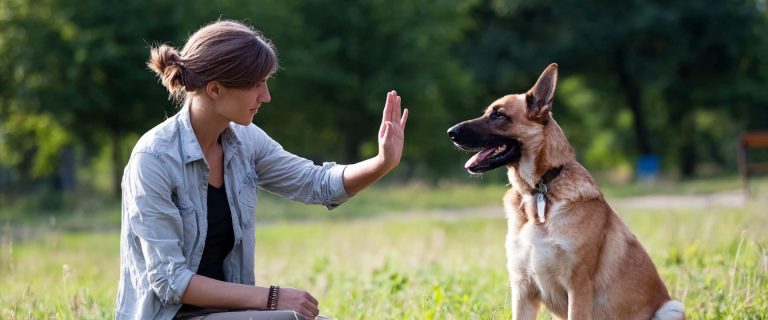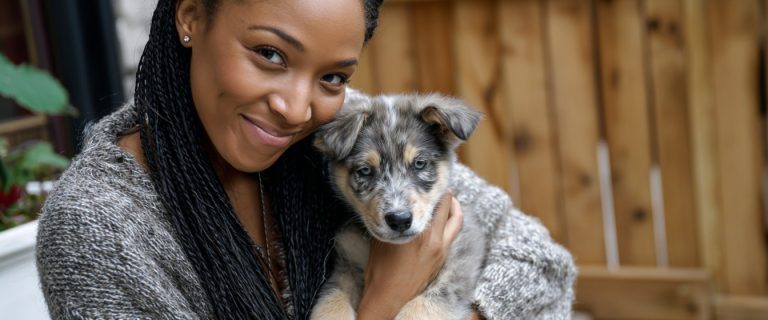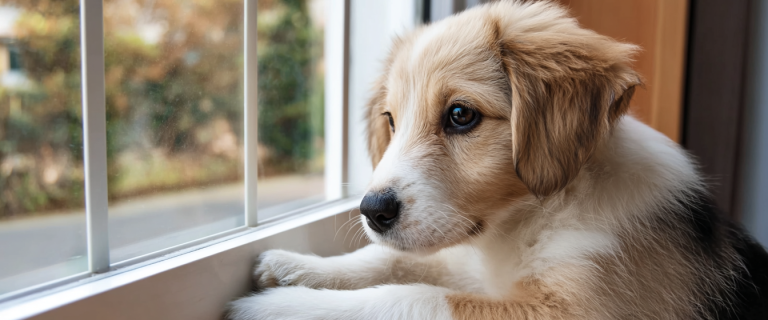Dealing with dog aggression can be a scary proposition, especially if your dog is large.
Dogs may be man’s best friend, but in some cases they can be man’s worst enemy.
Dog aggression is nothing to take lightly, whether you have a Chihuahua or a Mastiff. At the very least, you could be looking at a 10 day rabies observation stay at the vet for your dog.
At worst, your dog could seriously injure someone or kill another dog and might end up being put to sleep.
I came across a question in the forums posted by the owner of a 2-year-old Rottweiler.
According to her, they socialized their dog well as a puppy, and he is generally an easy-going dog.
However, when she walks him on leash or people walk past the house, the dog flips out.
In all other cases, her dog is happy and enjoys being around people and other pets.
That’s why I decided I should write a post on dog aggression, its causes, and what to do about it.
Related: What to do When your Dog Becomes Aggressive
Dog Aggression Occurs for A Variety of Reasons
Dog aggression can occur for a variety of reasons.
As an animal, a dog only has two options when it comes across something that makes it wary. It can either fight or run.
In many instances, the dog will choose the later, but in just as many instances, they’ll choose the former for a variety of reasons.
Abuse
Abuse takes negative things, and often benign things, and turns them into something for a dog to fear.
Some dogs have learned that new things are dangerous things. If they were used as bait dogs, abused dogs may learn to associate other animals with danger.
I have seen cases where a dog was completely comfortable with one sex and either aggressive or fearful of the opposite sex based on who abused him.
Fear
Some dogs that are naturally high strung or that have been attacked by other dogs may become fear aggressive.
In this instance, the dog believes that it must be the aggressor to survive. If the dog feels cornered, either his skittishness or his fear causes him to bite. In either case, the bite occurs from fear.
Protectiveness
Many dog breeds that are family pets today have their roots in being guard dogs.
In this case, dog aggression is the result of innate protective tendencies which were bred into the dog from the beginnings of the breed itself.
Without proper socializing, that protective nature can result in aggression whenever the dog perceives a threat to a member of the family, whether it be from another animal or human.
Training
Unfortunately, there are people out there who try to cultivate dog aggression.
They want a guard dog, or even worse, they want the dog to fight. These people generally take a dog which already has power and the ability to use it in its breed background and cultivate aggression.
This is both disgusting and quite sad, as these are generally the dogs that break out of fences and attack people. It’s never a good outcome for the person or the dog.
How to Approach Dog Aggression
There are some things you can do to try to mitigate dog aggression.
Before we get into that, I want to make it very clear, that these steps should only be taken in conjunction with a professional dog trainer with experience in dog aggression.
This isn’t something to do on your own or with a trainer picked based upon price.
Reduce Stressors
If there are things that you know exacerbate dog aggression, limit them.
For example, if your dog lunges at the window whenever someone walks by your house, try drawing the curtains.
If your dog shows aggression to another family pet at feeding time, feed them separately.
Little things like this can help reduce your dogs stress level and aggressive episodes.
Don’t Make it Worse
When dog aggression occurs, the last thing you want to do is make it worse.
The woman who posted her question in the forum noted that collar correction did not work for her dog’s aggression.
That’s because collar correction only serves to heighten a dogs sense of doom.
Think about it.
If your dog is in the midst of a full-on kill or be killed mental stimulation, the last thing you want to do is go jerking on its neck with either a regular collar or a pinch collar.
Never do anything that can help promote dog aggression.
For example, a natural tendency would be to raise your voice and tell your dog “NO!” very forcefully.
That’s not a good approach, however. Raising your voice, jerking on the collar, and other actions such as those only serve to heighten your dog’s already aggressive episode.
Consult a Trainer with Experience
I know trainers can be expensive, especially those who are versed in dog aggression, but it’s an expense that’s worth it.
You absolutely need professional guidance to address dog aggression. If not properly handled it can become a monster situation that will easily outpace you.
Dog Aggression is Serious Business
Whether you have an 8-pound ankle-biter or a 120-pound bruiser, dog aggression is not something to take lightly.
It can lead to injury to you, another person, or another dog, and the outcome can be tragic. If your dog is showing aggression, speak to your vet and then speak with a dog trainer well versed in dog aggression.
It’s the best thing you can do to keep your dog, other people, and other dogs happy and healthy.
Have you ever dealt with dog aggression before? Tell us about your experiences.
Author
-

A former Veterinary Assistant at Southwest Animal Care Hospital, Ben is an animal lover, blogger, and all-around geek. Along with writing for DogVills, Ben runs his own virtual assistant company, BizzyBim.
View all posts



